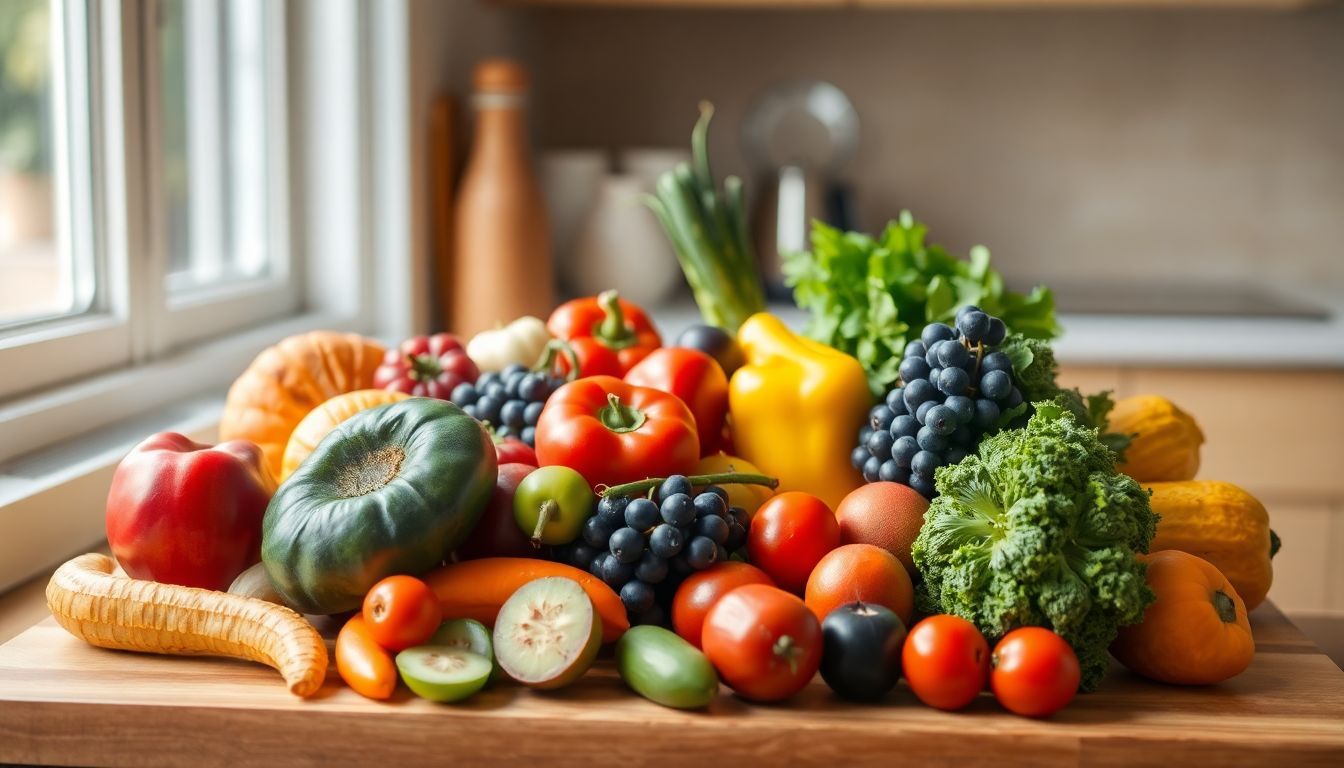Prostate cancer is a concern for many men as they age. Diet plays a big role in either lowering or raising your risk. Certain foods and nutrients can help fight cancer or support treatment.
Thank you for reading this post, don't forget to subscribe!This guide will show you how to eat for better prostate health—read on!
Key Takeaways
- Eating plant-based foods like broccoli, nuts, and whole grains can reduce cancer risks and support prostate health.
- Avoid red meat, processed meats, high-fat dairy, and saturated fats to lower advanced cancer risk.
- Omega-3 from fish or walnuts supports heart health and may slow aggressive cancers.
- The Portfolio Diet promotes fiber-rich meals with fruits, vegetables, and healthy oils to fight inflammation.
- Vitamin D is vital for bone strength and benefits those under prostate cancer treatment.
The Relationship Between Diet and Prostate Cancer
What you eat can affect prostate cancer risk and growth. A healthier diet may help slow cancer progression and improve overall health.
Importance of dietary choices in preventing or managing prostate cancer
Diet plays a critical role in prostate cancer prevention and management. Eating plant-based foods like cruciferous vegetables, whole grains, and fruits can lower inflammation. These foods are rich in antioxidants that fight free radicals, which may cause cell damage linked to cancer progression.
Avoiding red meat, processed meats, and high-fat dairy is important. These contain saturated fats that can increase the risk of advanced prostate cancer. Including omega-3 fatty acids from fish or nuts supports heart health while helping with weight loss—both vital for reducing risks tied to high body mass index (BMI) or obesity.

Specific Foods and Nutrients Beneficial in Fighting Prostate Cancer
A healthy diet can play a big role in managing prostate cancer. Certain foods and nutrients may even slow prostate cancer progression.
- Cruciferous vegetables like broccoli, cauliflower, and bok choy are rich in compounds that may fight cancer cells. These vegetables can help reduce inflammation and prevent damage from free radicals.
- Omega-3 fatty acids found in salmon, mackerel, and walnuts support prostate health. They may also lower the risk of aggressive cancers.
- Plant-based foods such as beans, lentils, and nuts contain fiber and antioxidants. These promote a healthy weight and combat cancer progression.
- Low-fat dairy options like skim milk or low-fat yogurt may provide protein without adding excess saturated fat. Reducing total fat intake could benefit prostate health over time.
- Whole grains like brown rice, quinoa, and oats deliver fiber while helping to maintain a lower BMI. A healthy weight can cut risks linked to hormone therapy or androgen-deprivation therapy (ADT).
- Vitamin D is key for bone health but also important for those with prostate cancer. Sunlight exposure or vitamin D supplements remain good sources of this nutrient for cancer patients under active surveillance or treatment.
The Role of the Portfolio Diet in Prostate Health
The Portfolio Diet focuses on plant-based foods. It includes whole grains, nuts, seeds, and healthy oils like olive oil. This diet reduces saturated fat and trans fats, which may lower inflammation linked to prostate cancer progression.
Eating more fiber from fruits and vegetables also helps maintain a healthy weight. High-fiber diets may slow cancer growth by reducing free radicals in the body. Replacing red meat or processed meats with plant-based proteins can support overall health while lowering heart disease risks too.
Conclusion
Eating well can help in the fight against prostate cancer. Focus on plant-based foods, healthy oils, and whole grains. Limit red meat, processed foods, and full-fat dairy. Small changes to your meals may protect you over time.
Combine a good diet with exercise for better health and quality of life.
